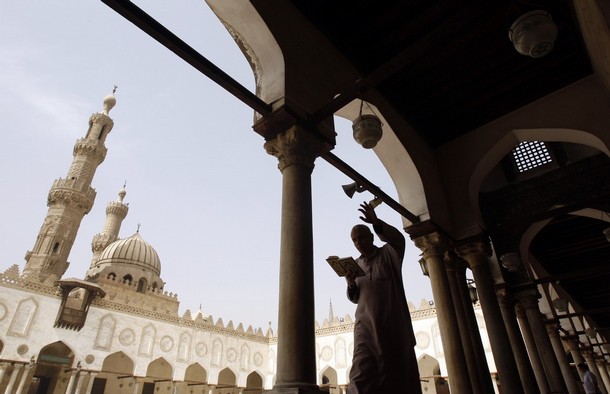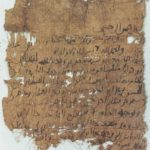
In general, in our time, some embarrassing questions regarding the Islamic narrative and its heritage have accumulated in several fields and at several levels as a result of the criminalization of questioning or examining under the tyranny of the ‘temple guardians’ of the traditional, regurgitated intellectual system.
AS THESE HAVE accumulated, the problems have become all the more convoluted and the threads of argument confused, to the point that the dominating intellectual knowledge system is now floundering in systematic dilemmas that can only be resolved from outside the system itself, and not from within it.
All attempts by the ‘temple guardians’ of the traditional, regurgitated intellectual system to overcome these accumulated cognitive and human dilemmas – due to the pursuit of justification, fabrication, or the outright covering up of the actual issue or due to submission to the ruling authorities – have ended up spawning a mercurial mentality of reverential justification that lacks any solid ground. Over the centuries this mentality has been able to furnish mechanisms and tools to answer any matter or its opposite, and justify all the acts and behaviour of the ‘righteous predecessors,’ whatever these were, and explain away shameful acts as part of some innate human perspective.
Such a mentality became dominant under the tyranny of the ruler, the ‘Vice-Regent of God’ on earth or His shadow upon it, thereby stripping the Muslims of the instinct to question and evaluate, so that they were left with no other alternative but to sign a blank cheque as long as the temple guardians of the traditional, regurgitated intellectual system could frame all the required answers and navigate the so-called Islamic, legal and doctrinal sciences, sciences which were patently full of holes.
Over the centuries this mentality has been able to furnish tools to justify the behaviour of the ‘righteous predecessors,’ whatever these were
To deconstruct this Islamic narrative and heritage requires the establishment of a starting ground so as to complete the process of dismantling and reassembling, and secure a model that will enable us to make a valid evaluations concerning the intellectual and cognitive system that underpins the slippery, changeable mentality of reverential justification.
So how is this starting ground to be laid, and the overall dismantling process begun? What is meant by this starting ground? This starting ground must provide a data bank of all the ingredients of the intellectual and cognitive system that supports the slippery mentality of reverential apologetics.
How can this databank be put together? Perhaps the first inevitable step is to address the various theses of that intellectual and knowledge system, question them and scrutinize every problem or issue and draw the relevant conclusions and whatever these questions bring up, and support them by evidence and solid argument.
The issues and conclusions will be compiled into a databank from which one may initiate the process of deconstructing the Islamic narrative and heritage. This will enable the public to understand, at least, what it is that the temple guardians of the traditional, regurgitated intellectual system have worked hard to conceal, distort or cover up. It must be presented in a language accessible to the public and not in the pointless and irrelevant intractable language of those guardians of the temple, who have long decided that there are things that are for public consumption and things that are private.
A free publishing space can contribute to the formation of a vehicle to establish the above-mentioned databank by creating a new focus within its axes, a focus I propose to name Dismantling the Islamic narrative and heritage. This is particularly important since such a project must necessarily be collective and long-term endeavour.

Suggested Reading
Methodological note
The proposed approach towards compiling this databank is to investigate each published paper on a subject or issue that lies within our specific focus. Each paper will be sought out for its originality regarding its conclusions and questions raised, grouped together with the collected published papers, and categorised according to the themes that will be progressively determined. These will be used to formulate a structural analysis for each focus. Then, based on this structural analyses, an initial starting ground will be prepared for deconstructing the Islamic narrative and heritage.
I hope that this proposal will be useful and that it will result in the formation of a group whose members will share their experience.
